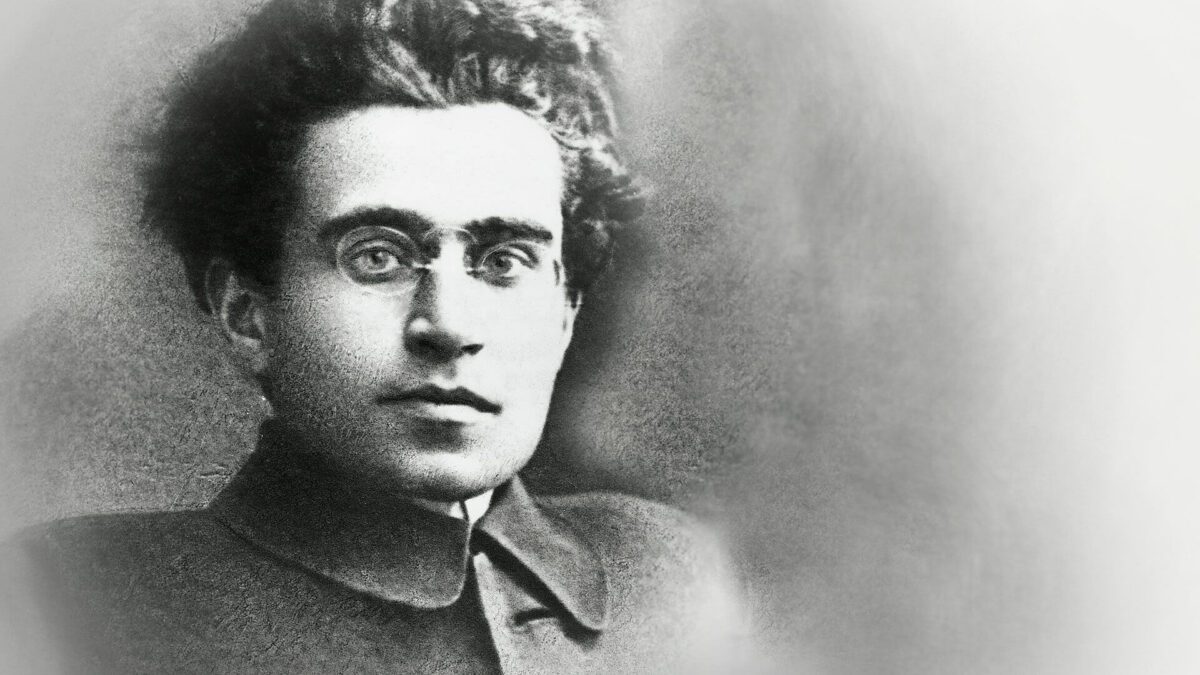Antonio Gramsci was an Italian intellectual and politician who founded the Italian Communist Party and contributed to the idea of communism in Italy. He was born in Ales, Italy on January 23, 1891.
In 1911, Gramsci began his academic career at the University of Turin. He also joined the Socialist Party, and was associated with the Federation of Young Socialists.
Gramsci formed the left in the socialist party and encouraged the development of factories.
Gramsci led a leftist movement in a congress in Livorno with the aim of founding the Italian Communist Party and spent two years in the Soviet Union.
When he returned to his home country, he became leader of the Italian Communist Party, and was elected to the council.
However, his party was banned by Benito Mussolini so he was arrested and imprisoned. While he was imprisoned, instead he undertook a historical and theoretical study of Italian society and strategies for change.
The ideas of Gramsci’s imprisonment at that time became the basis of ideas for figures, such as Robert Cox, Stephen Gill, Joseph Femia, and Robert Gilpin.
In Gramsci’s perspective, it is different from the realism perspective which assumes that the state is the only actor who has an important role, and prioritizes the concept of national interest.
Whereas in Gramsci’s theory focuses on hegemony. Gramsci’s perspective seems to be a sign to move away from the international order.
Hegemony defined by Gramsci is a conscious obedience to one’s power, the power that is built in Gramsci’s perspective does not come from coercion or violence but rather from a control.
Hegemony itself is born from the practice of approval or subjugation. If a group wants a win in agreement, it must be able to create historical blocs,
According to Gramsci, to hegemony a group, it is necessary to have an ideology that has a material basis and is supported by an intellectual.
For Gramsci, everyone is basically an intellectual, but not everyone has an intellectual function in social life.
Gramsci changed the meaning of hegemony from strategy to a concept, such as the Marxist concept of forces and relations of production, class and state.
Gramsci extended his idea of leadership as a condition for gaining power in a group.
Through his work, Gramsci emphasizes the concept of hegemony by explaining that “hegemony is a consensus organization.” And in several paragraphs of his Prison Notebook he uses the word leadership interchangeably with hegemony and opposite domination.
In Gramsci’s sense, the word hegemony must be distinguished from the meaning of the original word, namely the domination of a nation over another nation.
Gramsci emphasizes that the concept of hegemony focuses more on the human side. He also said consensus with spontaneity because it is psychological.
Gramsci’s thought emerged as an alternative to the approach to the theory of social change which was previously dominated by class determinism and Marxist economics.
Hegemony is built on the prestige of the importance of ideas and the inadequacy of physical strength alone in social and political control.
According to Gramsci, in order for those who are controlled to obey the ruler, those who are controlled must not only have and internalize values and norms.
REFERENCE
HI admin. (2013). Antonio Gramsci On The Crisis and The Rise Of Global Capitalism. Retrivied from https://hi.fisipol.ug.ac.id/riset-iis/antonio-gramsci-about-krisis-dan-kebangkitan-kapitalisme-global/
Ali, Zezen Zaenudin. (2017). Hegemony Thought Antonio Gramsci (1891-1937) in Italy. Yaqhzan,3(2). Retrivied from https://syekhnurjati.ac.id/jurnal/index.php/yaqhzan/article/download/5482/2544
Siswati, Endah.(2017).Anatomy of Antonio Gramsci’s Theory of Hegemony. Journal of Translitera , eds. 5.1-33. Retrivied from https://core.ac.uk/download/pdf/230839469.pdf
The Editors of Encyclopedia Britannica. (1998). Biography of Antonio Gramsci. Retrivied from https://www.britannica.com/biography/Antonio-Gramsci
